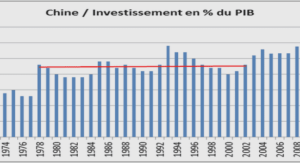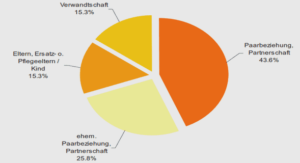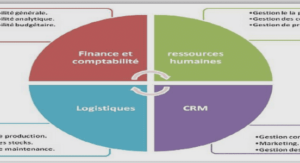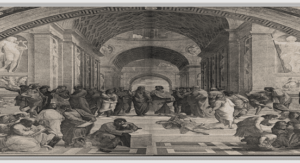POLITICS AND VIOLENCE IN SENEGAL FROM
1960 TO THE PRESENT
THE IMAGE OF POLITICS AND POLITICIANS
The year 1960 is a historical landmark in Africa because many African countries gained their independence. The trips of Général Degaulle are still insome African people’s memories. If there were countries which decided to continue to remain under European domination, others were ready to get their independence. African people were fed up with colonization and believed that independence would bring hope and enthousiasm. That is why Gorgui Dieng says: “après le départ des colonisateurs, les populations locales étaient euphoriques, enthousiastiques et croyaient que leur part du gâteau national ne tarderait pas à leur parvenir par le biais de leurs élus locaux.” 95 After the settlers left, the local people were euphoric, enthusiastic and believed that their share of the national cake would soon reach them through their local elected officials. [Translation mine]73 Africans strongly believed that independence would be their pride and joy. They were too hopeful because for them, positive changes would be achieved. Independence was expected to bring positive changes in all fields. The foreign settlers had left and local people had to take over. The destinies of African countries were in the hands of native Africans. Unfortunately, this hope did not last. The new African leaders did not succeed in changing the European policies. They did the same as the white settlers. Ngugi writes “Independence is a hot potato, a simple illusion: “it is like warm water in the mouth of a thirty man. It was not what people waited for these many years.” 9674 The new African leaders were unable to implement the changes they promised. Their rules were chaotic and their compatriots were flabbergasted to see that their dreams of prosperous countries did not come true. Their hopes were transformed into disillusion because their new rulers were on the way of perpetrating the colonizers’ policy and even worse. 75 The same situation prevails in all independent countries in Africa. This created in Gorgui Dieng, Pouvoir politique et roman: Chinua Achebe, Ngugi Wa Thiong’O et George Orwell, Paris, Harmattan, 2010, p. 195. 74 75 76 57 policies. On the contrary, they did even worse than the colonizers against whom they have fought. Their governance was characterized by evils like corruption, authoritarianism, censorship, intimidation and nepotism. A-Misbehavior and Mismanagement of Public Funds One evil of the Senegalese politics is corruption. It is one of the hindrances to the country’s development. The question which is worth asking is: what is corruption? Corruption is so complex to define. This complexity has aroused the interest of many specialists and writers who have tried to define it. The World Bank proposed the most simplified and popular definition of corruption as “the abuse of public power for private benefit” 9777 Corruption is then the theft of public funds by a person who is going to use them for private benefit. As for Tanzi, he defines it neutrally as the “intentional noncompliance with arm’s length relationship aimed at deriving some advantages from this behavior for oneself or for related individuals.” 98 These definitions help to understandthat corruption is a theft of a public property for private benefit. In other words, people embezzle public funds which were entrusted to them for personal interests. To get a broader view and understanding of the word corruption, Arnault Barthoulot in Les conséquences de la corruption says: La corruption vient du latin corrumpere, qui signifie briser complètement, détériorer, physiquement ou moralement. C’est la perversion ou le détournement d’un processus ou d’uneinteraction entre une ou plusieurs personnes dans le dessein, pour le corrupteur, d’obtenir desavantages ou des prérogatives particuliers ou, pour le corrompu, d’obtenir une rétribution enéchange de sa bienveillance. 99 Corruption comes from the Latin corrumpere, which means to break completely, to deteriorate, physically or morally. It is the perversion or misappropriation of a process or interaction between one or more people for the purpose, for the corrupter, to get particular advantages or prerogratives or, for the corrupt, to get a retribution in exchange for his benevolence. [Translation mine] Corruption involves at least two people: the corrupter and the corrupt. The corrupter resorts to this practice in order to get advantages or privileges in a quickest way. As for the corrupt, 97-Omololu Fagbadebo, Corruption, Governance and Political Instability inNigeria , p.30 in African Journal of Political Science and International Relations Vol. 1 (2), pp. 028-037, November 2007. Available online at http://www.academicjournals.org 98-Tanzi V (1995) “Corruption, Arm’s-Length Relationship and Market” in Fiorentian Gianluca and Sam Peltzman, eds, “The Economics of Organized Crime”, (Cambridge: Massachusetts: Cambridge University Press), p. 161-180) in Omololu Fagbadebo, Corruption, Governance and Political Instability in Nigeria.77 99-Arnault Barthoulot, Les conséquences de la corruption. Mémoire de 4ème année d’I.E.P, Juin 2009, p. 6. 58 he/she behaves so because he/she draws illegal profits from this collaboration. Be it the corrupter or the corrupt, the performers profit from corruption which undermines deeply the economy of a country. 78 This involvement of a giver and a receiver is pointed out by Alatas et al. (2006) that briefly define corruption as a “situation where two people can act to increase their own pay-off at the expense of a third person.” 100 This means that a sole individual cannot perpetrate the act. Very often, it involves at least two people to perform an act probably conceived by an individual. Barthoulot’s definition of corruption is shared by Vito Tanzi who says: «La corruption est la violation intentionnelle du principe d’impartialité dans lebut de retirer de ce comportement des avantages pour soimême ou pour des personnes aveclesquelles on est en relation ». 101 Corruption is the intentional violation of the principle of impartiality in order to derive benefits from this behavior for oneself or for people with whom one is connected. [Translation mine] Corruption breaks the principle of impartiality, meaning that while the minority derives benefits from the public funds, the masses are deprived of their rights. The masses are rolled in flour. In other words, they are left stranded. This dishonest, disloyal and illegal behavior is usually the favorite game of some powerful people, especially officials. For Gray and Kaufmann (1998), corruption includes“bribery and extortions, which necessarily involve at least two parties and other malfeasances that a public official can carry out alone including fraud and embezzlement.” 102 To them, it manifests itself in governmental activities through the appropriation of public assets for private use and embezzlement of public funds by politicians and high-level officials.79 Roughly speaking, corruption is anintentional abuse of entrusted power for private or personal benefits.Regarding the definitions provided, corruption profits the minority to the detriment of the majority. Corruption is so recurrent in Senegal that many people consider it as a legal practice which, unfortunately, affects the Senegalese development. It seems that embezzlers of public funds have lost their dignity. Many Senegalese people do no longer take into consideration this 100-Alatas V (2006). “Gender and Corruption: Insight from an Experimental Analysis”, accessed 101-Tanzi V (1995), op. cit, p. 6. 102-Gray CW, Kaufmann D (1998).“Corruption and Development.” http://www.worldbank.com/f andd/english/0398/articles/ 020398/html. Harriman T (2006). Is there a Future for Democracy in Nigeria? Text of a public lecture delivered at the Department of International development, Oxford University, Monday 5th June. 79 59 ancestral value. What matters for them is not dignity but what to do so as to become rich. This is why it is unthinkable for many of them to resign from office because doing so is losing one’s advantages and privileges. Then, we strongly believe that there are many factors that facilitate corruption. On the one hand, there is a loss of dignity, a virtue which isdear to old people. Nevetheless, it is important to remember that extended families do not facilitate things. One may be worthy, but sometimes he is tempted by the devil. All kinds of requests for support urge some honest citizens to divert money against their will.Some wages are not able to satisfy fully the family needs. Unhappily in Senegal, when someone gets an employment or is appointed, everything is expected from them. This is the reason why some workers trample on the rules of ethics and common sense and blindly embezzlers the amounts of money which were entrusted to them. On the other hand, we notice that many people indulge in corruption because they know that they are very well protected by their religious guides. As a result, they are aware of the fact they will not be worried seeing that they have powerful protectors. They are no longer afraid of resorting corruption because they feel protected by their hierarchical masters or by their religious guides.80 Most of the time, some people who are supposed to be fair, to be good examples of leaders are involved into embezzlement. They use the money they are entrusted for private benefits. Some people side with embezzlers and show them their support and sympathy for the only purpose of surely getting their share. Ignorance is a real hindrance because it creates inaction and facilitates misappropriation. Many Senegalese people, instead of denouncing money embezzlers of resources, remain silent, which explains a total disinterest. The masses seem not to be interested in what politicians are doing. This means that citizens usually remain inactive. That is the reason why Abdou Latif Coulibaly writes: “La corruption se nourrit du silence, elle s’entretient par le désintérêt du citoyen par rapport à la chose publique, elle prospère surtout par la démoralisation ou par la marginalisation des citoyennes et des citoyens. » 103 Corruption is nourished by silence, it is maintained by the citizen’s indefference regarding the public affairs, it thrives above all by demoralization or the marginalization of citizens. [Translation mine] 81 80 8103-Abdou Latif Coulibaly, Contes et Mécontes de l’ANOCI, Paris, Harmattan, 2009, pp. 197-198. 60 Nowadays, very few people denounce embezzlers’ bad practices. The ruled people seem to be fed up with this evil and think that they will lose their time denouncing. They are absolutely right because if someone dares to denounce a case of mismanagement, they can be prosecuted and even sent to prison. Paradoxically, they usually give their support to these looters as Coulibaly writes: Aussi, semble-t-on vouloir faire croire que la corruption ferait partie de l’ordre normal des choses…. La corruption est ainsi constamment eupheumisée car elle est cachée au sein de registres comportementaux acceptés par certains citoyens. Ceux-là vont même jusqu’à considérer tous ceux qui dénoncent les corrompus comme de vulgaires envieux.104 In addition, there seems to be a belief that corruption would be part of the normal order of things…. Corruption is thus constantly euphemized because it is hidden within behavioral registers acepted by some citizens. They even go so far as to consider all those who denounce the corrupt as vulgar envious people. [Translation mine] In Senegal, State authorities rarely show their determination to fight against this mismanagement. State leaders or members of the goverments are rarely fightened by these control bodies which, very often, exist only by names. There is also a culture of impunity which prevails in this country. Embezzlers are seldom worried. In other words, many of them benefit from impunity. Bad virtues are sometimes praised to the detriment of good values. Seeing that impunity is a real fact in Senegal, we believe that the end of corruption is not for tomorrow. As long as impunity prevails, corruption will unquestionably keep on gaining ground in Senegal. Coulibaly adds: «Cette meurtrissure découle naturellement de l’absence de volonté publique pour combattre de telles déviances et de voies de recours efficaces contre ces abus et de l’impunité généralisée de leurs auteurs…. »105 This bruise naturally stems from the lack of a public will to combat such deviations and effective remedies against these abuses and the widespread impunity of their perpetrators… .[Translation mine] 82Chinua Achebe also denounces corruption by State authorities in his book entitled A Man of the People. He incriminates the masses’ inaction regarding these bad practices. It is as if 104-Abdou Latif Coulibaly, op. cit, pp. 9-10. 105-Ibid., p. 10. 82 61 corruption is part of the normal order of things. The masses willingly condone the politicians’ behavior. Achebe writes: Let them eat. After all, white men used to do the eating, did we commit suicide? Where is all powerful white man? He came, he ate and he went. But we are all still around. The important thing then is to say alive. If you do, you will outlive your present annoyance. The great thing, as the old people have told us, is reminiscence: and only those who survive can have it. Besides, if you survive, who knows? It may be your turn to eat tomorrow. Your son may bring home your share.106 States authorities are usually the first people to encourage mismanagement through impunity. Instead of looking for solutions to fight against impunity, some States authorities promote it for fear of losing alliances and voters. The judicial authorities are often ineffective due to their lack of independence. Judges’careers are in the hands of the Minister of Justice who belongs to the Executive Power. The control bodies that are created to promote transparency and to punish the lawbreakers and money embezzlersoften exist by name. The Head of the State who should be the first one to fight against mismanagement sometimes protects some of his collaborators if hesays that some files that had to be transmitted to the judicial control bodies are put under his elbow. This is the reason why Birahim Seck says: La stagnation du Sénégal dans la zone rouge après une période de progression est due à un affaiblissement de la volonté politique de lutter contre la corruption qui se manifeste par la non transmission des dossiers relevés par les organes de contrôle de la justice que le Président dit mettre sous le coude, les réformes juridiques opérées qui ne vont pas dans le sens du renforcement de l’indépendance des juges….. 10783 The stagnation of Senegal in the red zone after a period of progress is due to a weakening of a political will to fight against corruption that manifests in the failure to transmit the files identified by the judicial control bodies that the President says put under his elbow, the legal reforms that do not go in the direction of strengthening the independence of the judges….[Translation mine] There is a host of factors that favor mismanagement in Senegal. People who are responsible for this practice are mainly State officials who do not make huge efforts to put an end to this 83 106-Chinua Achebe, A Man of the People, London, Heinemann, Educational Books, 1966, p. 144. 107-Dakaractu.com du 30-01-2019 62 phenomenon. It seems that State authorities are here for themselves but, not for the general interest. In this regard, Gorgui Dieng writes: “L’Etat n’est alors perçu qu’en tant que mamelle providentielle et quiconque a l’opportunité de se servir mais refuse de le faire, quel que soit le motif invoqué, n’est tout simplement pas sein d’esprit.”108 The State is perceived only as a providential mamelle and whoever has the opportunity to serve himself but refuses to do so, whatever the reason invoked, is simply not within the spirit. [Translation mine] All standards of State are infected by the naughty virus of bribery, embezzlement, manipulation and corruption. In a country where what matters is succeeding in satisfying one’s personal needs and those of one’s family without taking into consideration competence and skills, we believe that this country cannot move forward. Achebe attacks political leaders who do not fight against corruption in their countries, especially in Nigeria. He thinks that Nigeria seems to be the most corrupt country in Africa. The alarming situation of his country urges him to write in The Trouble with Nigeria:84 My frank and honest opinion is that anybody who can say that corruption in Nigeria has not yet become alarming is either a fool, a crook or else does not live in this country… Corruption has passed the alarming and entered the fatal stage; and Nigeria will die if we keep on pretending that she is the only slightest indisposed… Keeping an average Nigerian from being corrupt is like keeping a goat from eating yam… Nigerians are corrupt because the system under which they live today makes corruption easy and profitable
INTRODUCTION |




